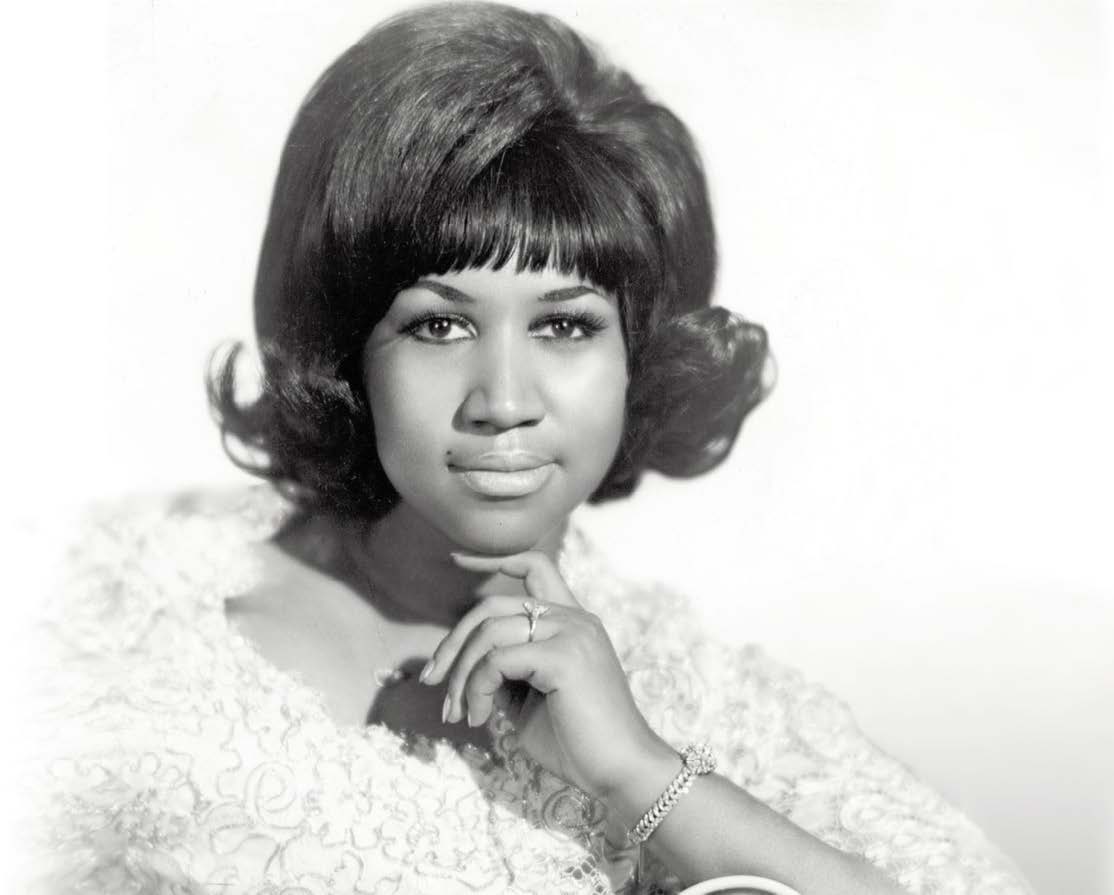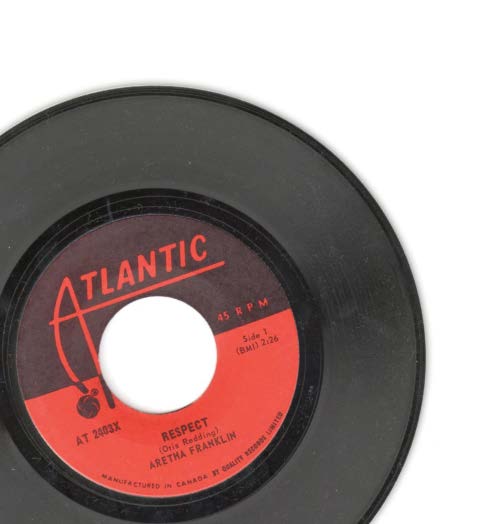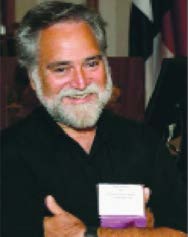RICK RADER, MD ■ EDITOR-IN-CHIEF

FIND OUT WHAT IT MEANS TO ME: The Queen of Soul in 1968; "'Respect' caught on with the black-power movement and feminists and human rights activists across the world. Its appeal remains powerful."
R-E-S-P-E-C-T
Aretha Franklin took Otis Redding's song and transformed the song into an anthem for civil rights and feminism. Indeed, there are millions of people who have adopted the song as their own personal anthem.
Off to Nashville for a conference.Depending on the weather and traffic, the trip from "The Scenic City" (Chattanooga) to "The Music City" (Nashville) typically takes two hours. Enough time for me to collect my thoughts, return some phone calls and listen to some music.
I'm listening to an "Oldies" station; mostly music from the 60's and I'm in the groove. Amazing how music elicits emo tions. I could remember the songs, the lyrics and the people I associate with the music.
As I approach Murfreesboro (not significant to the story I just like the sound of the name of that town) they are playing "Runaway" (Del Shannon), "Sherry" (Four Seasons), "Groovin'" (Young Rascals), "Windy" (The Association), and "Downtown" (Petula Clark).
I change to another "Oldies" station and they're playing some great R and B tunes from the 70's. They're playing "Still" (The Commodores), and "Reunited" (Peaches and Herb) and I'm encouraged to sing; and I'm slapping the steering wheel as if the music depended on me. Of course I'm convinced it did.
All of a sudden it dawned on me. All the songs they played in the last 30 or 40 minutes were "single word songs." The titles of all the songs contained only one word – "Sherry," "Groovin," "Windy," "Reunited," "Still". Not sure if it was intentional, not sure why or how I noticed it and was certainly not sure of its significance (or if it had any). So I become motivated to think of other "one word songs." I come up with "Magic," by Olivia Newton John, "Believe," by Cher, "Tequila," by the Champs, "Unforgettable," by Nat King Cole. I'm on a roll now – "Venus," by Frankie Avalon, "Abracadabra," by the Steve Miller Band and "Maneater," by Daryl Hall and John Oates. This ridiculous exercise gets me to my exit.
As I'm pulling off the exit I change to a news station and learn that, "Legendary artist Aretha Franklin passed away after several days in hospice care." I'm immediately saddened by the news of her passing but at the same time chagrined that I didn't come up with the number one "one-word song," her song, "Respect."
Released in 1967, the song propelled her to stardom and earned her the title of the "Queen of Soul."
"Queen of Soul." While "Respect" was clearly "her" song, she didn't write it, nor was she the first to record it. Those bragging rights belonged to Otis Redding who wrote it and recorded it in 1965. Interestingly enough, Redding realized that "his" song had become "her" song. In 1967 at the Monterey Pop Festival Otis Redding performed "Respect," but first introduced it by saying, "This next song is a song that a girl took away from me. A good friend of mine, this girl, she just took the song, but I'm still going to do it anyway." "Took the song," indeed, she not only took the song, she transformed the song into an anthem for civil rights and feminism.

Redding's rendition is a plea from a desperate man who demands respect from his woman for being the breadwinner. Franklin's version takes a man's demand for respect from a woman when he got home from work and flipped it. It was now written (sung) in stone and would never be returned to Redding's original reference. According to DeNeen Brown (Washington Post), "The song caught on with the black-power movement and feminists and human rights activists across the world. Its appeal remains powerful. In the last year, it has become a symbol of the #MeToo movement."
" The song appeared in a turbulent time, race riots, political assassinations, the Vietnam War – a time when respect was blurry, denied and needed. Wesley Morris (New York Times) shares, "Ms. Franklin's respect lasts for two minutes and 28 seconds. That's all – basically a round of boxing. Nothing that's over so soon should give you that much strength. But that was Aretha Franklin: a quick trip to the emotional gym."
Franklin was the first woman to be inducted into the Rock and Roll Hall of Fame in 1987.
She won two Grammys for "Respect." There are millions of people who have adopted the song as their own personal anthem. Why is the appeal for respect such a universal outcry? Every culture, every civilization, every tribe and clan seeks respect, offers respect and strives to define and earn it.
"Respect is a positive feeling or action shown towards someone or something considered important, or held in high esteem or regard; it conveys a sense of admiration for good or valuable qualities; and it is also the process of honoring someone by exhibiting care, concern, or consideration for their needs or feelings." It is this last component (Merriam Webster) that inspires parents, teachers, clinicians, direct support professionals, counselors, therapists, van drivers, housekeepers, researchers, advocates and yes, even service animals to continue to do what they do – care for people's needs and feelings. It is the motivation for this magazine, Exceptional Parent, which has been at it for almost 50 years.
"Be beautiful if you can, wise if you want to, but be respected – that is essential." Anna Gould said.
The "Two-Minute Read" on "What Respect is" from Steve Hein and the folks at The Emotional Quotient: "On a practical level respect includes taking someone's feelings, needs, thoughts, ideas, wishes and preferences into consideration. It means taking all of these seriously and giving them worth and value. In fact, giving someone respect seems similar to valuing them and their thoughts, feelings, etc. It also includes acknowledging them, listening to them, being truthful with them, and accepting their individuality and idiosyncrasies." Thank goodness for "one word songs." They typically say it all. •
ANCORA IMPARO In his 87th year, the artist Michelangelo (1475 -1564) is believed to have said "Ancora imparo" (I am still learning). Hence, the name for my monthly observations and comments. — Rick Rader, MD, Editor-in-Chief, EP Magazine Director, Morton J. Kent Habilitation Center Orange Grove Center, Chattanooga, TN
